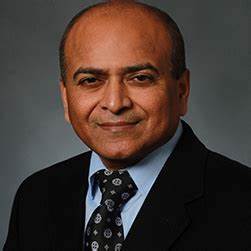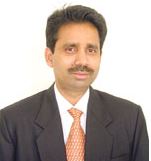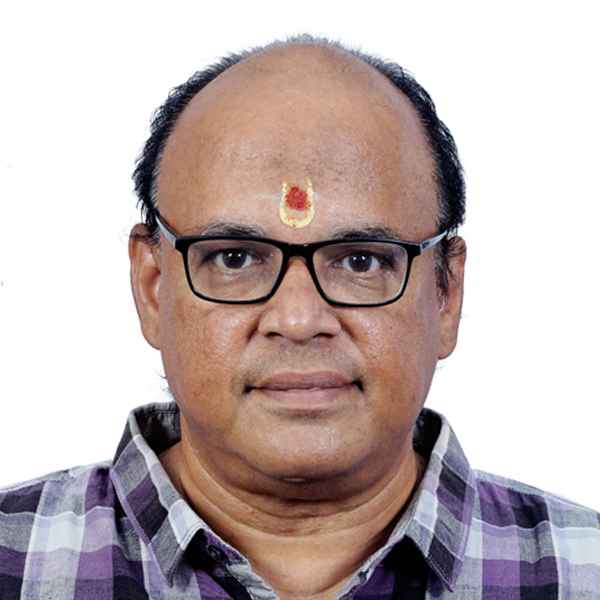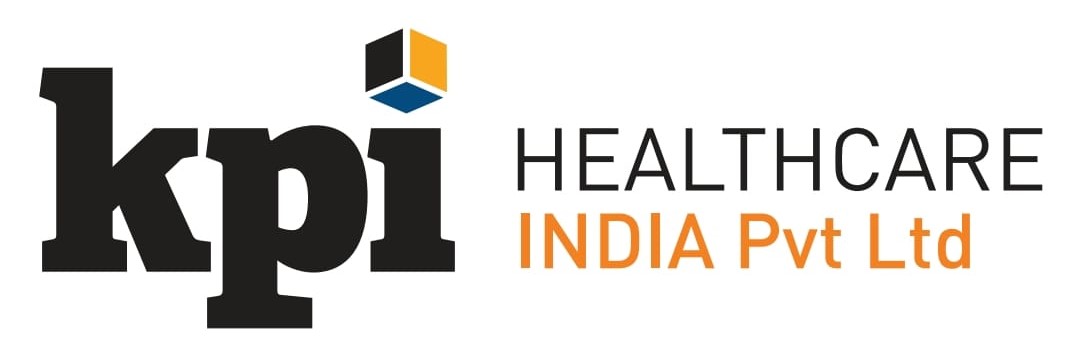ABOUT THE UNIVERSITY
Kalasalingam Academy of Research and Education (KARE) formerly Arulmigu Kalasalingam College of Engineering was established in 1984 by the pioneering KalasalingamAnandamAmmal Charities. Located at the pristine foothills of the scenic Western Ghats, the college obtained the Deemed to be University status in 2006. The Institution has been serving the society for forty four long years and it caters to the needs of the students from all walks of the society. KARE offers UG programmes, PG programmes and Ph.D programmes. It is the first Institution in India to introduce a special B.Techprogramme in engineering for the differently able (speech and hearing impaired) students. The Institution has been re-accredited by NAAC with ‘A++’ grade in 2024. 8 UG & 3 PG programmes have been accredited by NBA under Tier-1. The Institution continues to do indefatigable work in getting projects and research centers. It has received DST funding to establish the National Center for Advance Research in Discrete Mathematics. KARE has got the state of the art International Research Center with splendid high end instruments for advanced research in material sciences and life sciences. Multistoried separate hostels with plenty of facilities provide accommodation to thousands of students. The institution has spent exorbitant sum to create a world class swimming pool and indoor auditorium for sports. Furthermore KARE gives utmost importance to Intra-mural and Extra mural activities for the holistic development of the students.
About the Department of Biomedical Engineering
Established in the year 2015-16 with an aim of creating skilled leaders for the modern health care industry, the department of Biomedical Engineering offers B.Tech Programme in Biomedical Engineering. This branch of engineering covers the application of engineering principles and design concepts to medicine and biology for healthcare purposes. This emerging field seeks to close the gap between engineering and medicine, combining the design and problem-solving skills of engineering with medical biological sciences to advance health care treatment, including diagnosis, monitoring, and therapy. The department has experienced and trained faculty to impart knowledge in this specialized field. The programme is accredited by ABET, an international accreditation body for engineering and technical education. The Department of Biomedical Engineering puts massive efforts to deliver uncomparable Biomedical engineering education using advanced teaching pedagogy and learning support for undergraduate students. The department provides state of the art research infrastructure for the students.
Department of Electronics and Communication Engineering
Established in 1993, the Department of Electronics and Communication Engineering offers B.Tech. in Electronics and Communication Engineering, M.Tech. in VLSI Design, and Ph.D. programs in various allied fields. Committed to providing quality professional education, the department boasts well-experienced and dedicated faculty members aiming to impart sound knowledge and awareness of the latest trends in the field. Accredited by NBA under Tier-I category, the programs also hold accreditation from ABET. The department collaborates with industry giants such as Nanochip Solutions, Tessolve Semiconductors, National Instruments, and Bluetronics to ensure students are industry-ready. With the "Centre for VLSI and Signal Processing" sponsored by DST, Government of India, under the FIST scheme, the department provides state-of-the-art laboratories in collaboration with industry partners like Tessolve Semiconductors, Intel-Altera, and Texas Instruments.
Jointly with
Department of Bio-Medical Laboratory Science & Management, Faculty of Science,
Vidyasagar University, Westbengal.
THEME
"Innovations in Alzheimer's Care: Leveraging Technology for Early Intervention and Improved Outcomes"
This theme encapsulates the focus on advancements in treatment approaches, the importance of early intervention, and the pivotal role of cutting-edge technologies in addressing the challenges posed by Alzheimer's disease. It highlights the conference's emphasis on exploring innovative solutions to enhance diagnosis, treatment, and caregiving practices, ultimately aiming to improve the quality of life for individuals affected by Alzheimer's and their caregivers.
OBJECTIVES
The objectives of the International Conference on "Developments in Alzheimer's Disease Treatment and Early
Intervention through Cutting Edge Technologies” (INCDAD 2024) may include:
1. Enhancing Awareness: Raise awareness about Alzheimer's disease, its prevalence, and the challenges faced
by
individuals, families, and caregivers affected by the condition.
2. Knowledge Dissemination: Provide a platform for researchers, clinicians, practitioners, and stakeholders
to
share the latest advancements, research findings, and best practices in Alzheimer's disease treatment and early
intervention.
3. Exploring Cutting-Edge Technologies: Highlight the role of innovative technologies such as artificial
intelligence, machine learning, neuroimaging, genetic testing, and digital health solutions in advancing the
diagnosis, treatment, and management of Alzheimer's disease.
4. Promoting Collaboration: Facilitate networking opportunities and foster collaboration among
multidisciplinary
professionals, including neuroscientists, neurologists, geriatricians, psychologists, biomedical engineers, and
industry representatives, to drive progress in Alzheimer's disease research and care.
5. Addressing Challenges: Identify key challenges and gaps in current Alzheimer's disease management and
discuss
strategies to overcome these barriers through interdisciplinary approaches and collaborative efforts.
TOPICS
| Neuroimaging and Biomarkers |
| Precision Medicine Approaches |
| Drug Discovery and Development |
| Digital Health and Wearable Technologies |
| Neurostimulation and Brain-Computer Interfaces |
| Big Data Analytics and Artificial Intelligence |
| Non-Pharmacological Interventions |
| Regenerative Medicine and Stem Cell Therapy |
| Ethical Considerations and Patient-Centered Care |
| Emerging Pharmacological Therapies |
| Immunotherapy and Vaccination Strategies |
| Wireless Communication Systems |
| Signal Processing and Image Processing |
| Embedded Systems and IoT |
| Digital Electronics and VLSI Design |
| Biomedical Signal Processing and Medical Electronics |
| Cyber-Physical Systems and Robotics |
| Communication Networks |
PAPER SUBMISSION AND REGISTRATION LINK
The paper selection process will employ a double-blind review system, ensuring anonymity for both authors and
reviewers.
Papers should be 4 to 5 pages long and in the IEEE conference paper template. The templates are available at the
link https://www.ieee.org/conferences/publishing/templates.html.
Authors must ensure that their manuscript is original work and properly cite any sources they use. Plagiarism,
including self-plagiarism, is strictly prohibited.
-Authors should treat the review process as confidential and not disclose information about their submission or
the review process to anyone outside of the review process.
-Manuscripts must adhere to specific formatting requirements outlined by the conference (IEEE Format), such as
font size, margins, and reference style. Failure to comply with formatting guidelines may result in rejection.
-Authors must adhere to ethical standards in research, including obtaining appropriate permissions for any data or
materials used in the study and disclosing any potential conflicts of interest.
Manuscripts should be written in clear and concise language, with proper grammar and spelling. Authors should
avoid jargon or overly technical language that may make the manuscript difficult to understand.
Submission Link
(OR)
Submit the Paper using QR code

PUBLICATIONS
| 1.All accepted papers will be published in conference proceedings with the ISBN. |
| 2.Selected papers after regular review it will get published in "Romanian Journal of Neurology" (SCOPUS INDEXED) at free of cost. |
| 3.Also we are in the process of bringing more such journals on board and will announce in due course. |
CHIEF PATRONS
Dr. K. Sridharan, Chancellor, KAREDr.S.Arivalagi, Pro Chancellor, KARE
Dr.S. Shasi Anand, Vice-President, KARE
Er.S. Arjun Kalasalingam, Vice -President, KARE
PATRONS
Dr. V. Vasudevan, Registrar, KAREDr. S. Narayanan, Vice Chancellor, KARE
ORGANIZING CHAIRS
Dr.P.Sivakumar, Dean-SEET, KAREDr.M. Pallikonda Rajasekaran, Director(R&D), KARE
PROGRAM CHAIR
Prof.Dr.V.Yegnanarayanan, Professor, KARECONVENOR
Dr.T.Arunprasath, HOD/BME, KAREDr.A.Muthukumar, HOD/ECE, KARE
ORGANIZING SECRETARY
Dr.S.Sakthivel, Associate Professor, BME, KAREDr.K.Pandiaraj, Associate Professor, ECE, KARE
TREASURERS
Dr.P.Manikandan, Associate Professor, ECE, KAREDr.V.Muneeswaran, Associate Professor, ECE, KARE
| INSTITUTE ADVISORY COMMITEES |
| Dr.J.T.Winowlin Jappes, CoE, KARE |
| Dr.Koteswara Rao Anne, Director(Academics), KARE |
| Dr.C.Sivapragasam, Director(IQAC), KARE |
| Dr.P.Sarasu, Director(International Relations), KARE |
| Dr.A.Alavudeen, Director(Corporate Relations), KARE |
| Dr.A.Samson Nesaraj, Director(Student Affairs), KARE |
| Dr.K.Sundar, Dean(SBCE), KARE |
| Dr. N.Rajini, Dean(FE), KARE |
| Dr.P.Deepalakshmi, Dean(SoC), KARE |
| Dr.S.Rajesh, Dean(SAMCE), KARE |
| Dr.Jesu Edward George, Dean(Agri & Horti), KARE |
| Dr.P.Ganesan, Dean(KBS), KARE |
| Dr.V.Pandiyarajan, Dean(SLACE), KARE |
| INTERNATIONAL ADVISORY COMMITTEE |
| Prof. Shihab Shamma, Institute of Systems Research University of Maryland, USA |
| Prof. Barbara Shinn-Cunningham, Director, Neuroscience Institute, CMU, USA. |
| Prof. Rajesh P. N. Rao, University of Washington, Seattle, USA. |
| Prof. Elizabeth Hwang, University of Washington, Seattle, USA. |
| Prof. Paul G. University of Washington, Seattle, USA. |
| Prof. Madhav Thambisetty, National Institute on Aging & National Institutes of Health (NIH), USA. |
| Prof. John Morris, Washington University, USA. |
| Prof. Bart D Strooper, Dementia Research Institute, UK. |
| Prof. Mary Ganguli, University of Pittsburgh, USA. |
| Prof. Maria C. Carrillo, Chief Science Officer at Alzheimer's Association, USA. |
| Prof. Sudha Seshadri, Glenn Biggs Institute of Alzheimer's and Neurodegenerative Diseases San Antonio, USA |
| Dr. Shanmuga Sundar Dhanabalan, RMIT University, Australia |
| Dr. Preethika Immaculate Britto, King Faisal University, Kingdom of Saudi Arabia. |
| Dr. B. Sundaravadivazhagan, University of Technology and Applied Sciences-Al Mussanah, Oman. |
| Dr. Karthikeyan Thangavel, University of Technology and Applied Sciences, Sultanate of Oman. |
| Dr. Krishna Priya R, University of Technology and Applied Sciences, Musandam, Oman. |
| Prof. Michal Jasinski, Wroclaw University of Science and Technology, Poland. |
| Dr. Ruchi Doshi, Universidad Azteca, Mexico. |
| Dr. Ashok Vajravelu, Universiti Tun Hussein Onn Malaysia (UTHM), |
| Dr. Suresh Manic K, National University, Oman |
| Dr. Subburaj Alagarsamy, Manipal Academy of Higher Education, Dubai. |
| Dr. Bogdana-Tania Gavrila, Aurel Vlaicu, Arad, Romania. |
| Dr. Dragu Daniel, Aurel Vlaicu University of Arad, Faculty of Engineering, Romania |
| Dr. Valentina E.Balas, Professor, Aurel Vlaicu University of Arad / Academy of Romanian Scientists, Romania. |
| Dr. Marius M.Balas, Professor, Aurel Vlaicu University of Arad, Romania. |
| Dr Dana Rad, Professor, Faculty of Engineering, Aurel Vlaicu University of Arad, Romania. |
| NATIONAL ADVISORY COMMITTEE |
| Prof Ravindranath Vijayalakshmi, Former Director, Centre for Brain Research, CBR, Bangalore |
| Prof Aditya Murthy, Centre for Neurscience, IISC, Bengaluru, India |
| Prof S.P Arun, Centre for Neuroscience, IISC, Bengaluru, India. |
| Prof Manikandan Narayanan, Department of Computer Science and Engineering, IIT Madras, India. |
| Prof Mohana Sankar Sivaprakasam, IIT Madras, India. |
| Dr. Gaiti Hasan, National Centre for Biological Sciences, TIFR, Bengaluru, INDIA. |
| Dr. Sivakumar P T, National Institute of Mental Health and Neurosciences, Bengaluru, INDIA. |
| Dr. Chithra Lekha, Virginia Tech India, Research Park, Indian Institute of Technology Madras. |
| Dr. K. Venkataraman, Managing Director, Biovision Medical Systems Pvt. Ltd, Chennai. |
| Dr. K.Shankar, NIT Silchar, Assam. |
| Dr. A. Thirugnanam, NIT Rourkela, Odisha. |
| Dr. Sundareswaran K, National Institute of Technology, Tiruchirappalli. |
| Dr J.B. Jeeva, VIT University, Vellore |
| Dr. D.Saraswathi, VIT University, Chennai. |
| Dr Karthikeyan, SRM University, Andhra Pradesh |
| Dr. R. K. Jeyachitra, National Institute of Technology, Tiruchirapalli |
| Dr. B. Rebekka, National Institute of Technology, Tiruchirapalli |
| Dr. S. Hariharan, Vellore Institute of Technology, Vellore |
| Dr. V. Nithish Kumar, VIT University, Vellore |
| Dr. Sumaiya MN, Dayananda Sagar Academy of Technology and Management, Bangalore. |
| Dr. Jayakumar K, Vellore Institute of Technology, Vellore. |
IMPORTANT DATES
| Beginning of Submission of full-length paper | 11th March 2024 |
| Last date for full-length paper | 15th May 2024 |
| Notification of Acceptance | 05th June 2024 |
| Last date for Conference Registration | 30th June 2024 |
| Conference Date | 2nd - 3rd,August 2024 |
FOR INTERNATIONAL CONFERENCE BROCHURE, CLICK THIS LINK
DOWNLOAD BROCHUREREGISTRATION FEES (INCLUDING GST)
| Delegates | Indian Participants | International Participants |
| With Papers | ||
| Student/Research Scholars | Rs.3500/- | USD 100 |
| Academia participants | Rs.5000/- | USD 150 |
| Industrial Participants | Rs.10000/- | USD 250 |
| Without Papers | ||
| Student/Research Scholars | Rs.1000/- | USD 50 |
| Academia participants | Rs.1500/- | USD 75 |
| Industrial Participants | Rs.5000/- | USD 125 |
SPEAKERS
Prof. Vasant Honavar Huck, Chair in Biomedical Data Sciences and Artificial Intelligence, The Pennsylvania State University, United States of America.
Title: Scientific and Mathematical perspectives on Neurodegenerative Diseases

Prof. Pravat Kumar Mandal, a Distinguished Professor from National Brain Research Centre, Gurgaon, Punjab.
Title:"Scientific and Mathematical Perspectives on Neurodegenerative Diseases"

Dr V YEGNANARAYANAN, Professor of Mathematics, Kalasalingam Academy of Research and Education.

ACCOUNT DETAILS
Name : ASELCOME
Ac.No : 627302010006920
Name of The Bank : Union Bank of India
IFSC Code: UBINO562734
Please take note of the following:
The delegate’s name must be clearly stated in the bank transaction.
The registration fees cover the expenses for tea/coffee, snacks, working lunch, and
banquet dinner.
The delegate’s name must be clearly stated in the bank transaction.
The registration fees cover the expenses for tea/coffee, snacks, working lunch, and banquet dinner.
OUR SPONSORS
Diamond Level

CONTACT
| Dr.S.Sakthivel |
| Organizing Secretary (INCDAD2024) |
| Associate Professor |
| Department of Biomedical Engineering |
| Kalasalingam Academy of Research and Education |
| ph:(+91)-7305161992 |
| Email.ID:incdad2024@klu.ac.in |
| Dr.K.Pandiaraj |
| Organizing Secretary (INCDAD2024) |
| Associate Professor |
| Department of ECE |
| Kalasalingam Academy of Research and Education |
| ph:(+91)-9894194531 |
| Email.ID:incdad2024@klu.ac.in |
| Dr. M. Pallikonda Rajasekaran |
| Organizing Chair (INCDAD2024) |
| Director R & D |
| Kalasalingam Academy of Research and Education |
| Email.ID:incdad2024@klu.ac.in |
| Dr.P.Sivakumar |
| Organizing Chair (INCDAD2024) |
| Director R & D |
| Kalasalingam Academy of Research and Education |
| Email.ID:incdad2024@klu.ac.in |





